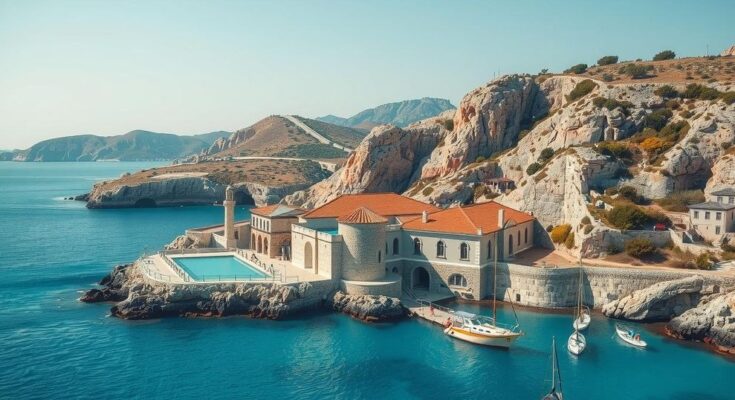Prime Minister Narendra Modi’s Cyprus visit marks the first by an Indian PM in over 20 years. The trip signals a strategic message to Turkey, which has strengthened ties with Pakistan. Cyprus is important for India’s diplomatic relations, economic plans through IMEC, and its rising role in the EU as it prepares for its council presidency in 2026.
Prime Minister Narendra Modi embarked on a significant three-nation tour, beginning with his visit to Cyprus on June 15, 2025. This marks the first time in over two decades that an Indian Prime Minister has made this trip. Notably, this visit is widely interpreted as a strategic move to send a message to Turkey, which has been bolstering its relationship with Pakistan. Modi is expected to engage in discussions with President Nikos Christodoulides in Nicosia and address business leaders in Limassol during his stay.
Cyprus, positioned in the eastern Mediterranean near Turkey and Syria, has complex geopolitical significance. While it is geographically part of Asia, the island is a member of the European Union (EU). Gaining independence from British rule in 1960, Cyprus witnessed tensions soon after, leading to the involvement of the United Nations Peacekeeping Force due to pervasive violence between Greek Cypriots and Turkish Cypriots. The situation escalated in 1974 when Turkey intervened militarily following a coup by Greek Cypriots, resulting in ongoing divisions that remain unresolved to this day.
India values its friendship with Cyprus, as highlighted by a recent Ministry of External Affairs report describing Cyprus as a ”dependable friend.” The document emphasizes Cyprus’ backing of India’s aspiration for a permanent seat on a reformed UN Security Council and its support for the India-US Civil Nuclear Agreement, which is vital for India’s energy security and economic progress. This contrasts sharply with Turkey’s past actions, including its military and political support for Pakistan regarding Kashmir, which has fueled tensions between New Delhi and Ankara.
Before his departure, PM Modi underscored that this tour is an opportunity to express gratitude to partner nations for their unwavering support against cross-border terrorism. He aims to enhance global collaboration in addressing the multifaceted challenges posed by terrorism. This context amplifies the importance of Modi’s visit and the dialogues scheduled with Cypriot leadership.
Beyond the Turkey angle, Cyprus is strategically vital for India for multiple reasons. Its geographic location enhances its importance in the India-Middle East-Europe Economic Corridor (IMEC), a significant infrastructure initiative aimed at boosting trade and connectivity between India and Europe through the Middle East. Cyprus’ role in IMEC could yield substantial benefits for India’s economic interests in the region.
Additionally, Cyprus is poised to assume the Presidency of the Council of the EU in the first half of 2026. This positions Nicosia as a potential key ally for India as it strives to strengthen trade and security ties with European nations. Overall, Modi’s visit emphasizes the multifaceted nature of India’s diplomatic efforts and the balancing act it performs amid complex regional dynamics.
In summary, Prime Minister Modi’s visit to Cyprus is emblematic of India’s strategic outreach and diplomacy in a region rife with historical conflicts. Cyprus serves as a crucial ally, providing support for India’s international positions and acting as a pivotal element in economic aspirations via IMEC. This visit also serves to underline India’s commitment to anti-terrorism efforts while countering the influence of Turkey in the region. The outcomes of Modi’s discussions in Cyprus could have lasting implications for India’s relationships in Europe and the Middle East.
Original Source: indianexpress.com




